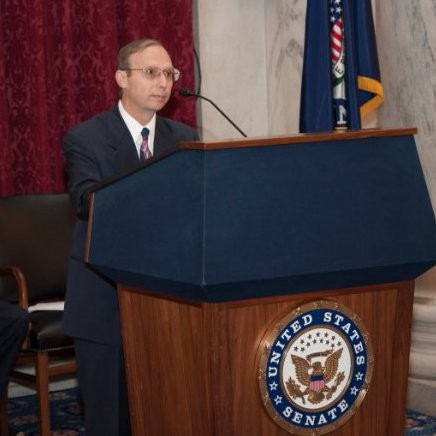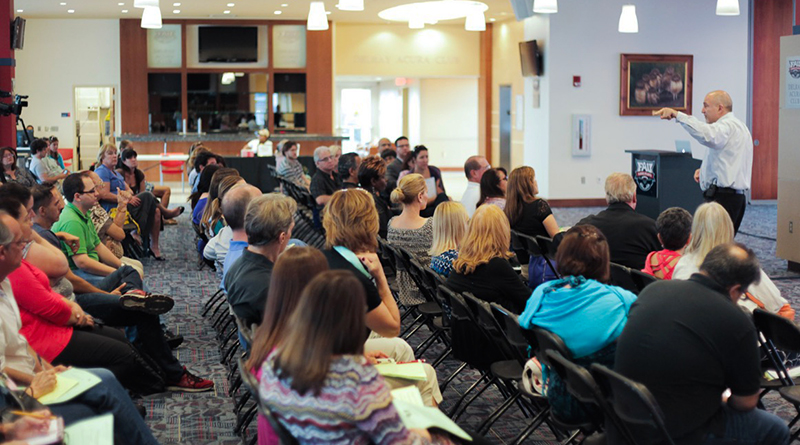
How the Hospital System is Failing When it Comes to Cognitive Issues
By Michael Ellenbogen
Advocating for Change
For about 15 years now I have been advocating for the dementia arena. I have been leaving bread crumbs all over the place with some of the highest levels of people in the world in hopes I can make a small difference for those impacted by this horrible disease.
I started doing this because there were not enough people, actually living with dementia, standing up for others. There was less than a handful of folks doing this from around the world. Today, I am glad to say, there are many out there stepping up to do their part, but sadly I still don’t see the number of minority representatives I would like to see.
When I began this journey, I had a list of about 15 things to be accomplished that would lead to better support for those impacted by dementia. Over the years that list grew and I was very fortunate to get all but two items accomplished, with the help of many great people and organizations out there.
I believe we are living in exciting times as so many advancements have occurred in the last 5 years. People with cognitive issues will benefit greatly, and the possibility even exists that some living with dementia today will see a cure, or at least a way to slow it down within the next 10 years.
Currently there are some great programs being designed and considered to keep people living in their homes longer and being paid so they are not forced into seeking an assisted living facility or memory care unit.
Hospital and Medical Staff
There is a great deal of new education programs around dementia for hospitals and medical staff that did not exist a few years ago. Perhaps, early training and awareness is the answer? Yet, medical schools today are overburdened with meeting high accreditation standards for qualifying exams and less concerned with graduating doctors educated to address complex care pathways like dementia and cognitive disabilities. This includes places like Harvard, where I had the opportunity to speak with a class of students soon to graduate. It is sad to see our future physicians being trained as expert scientists rather than patient care stewards.
Education
So how do we resolve some of these issues? I personally know that most medical staff is eager to learn more about dementia. But that comes at a cost to the institutions for which they work. I have been fortunate to speak to people at the highest level in government, related to healthcare, and they all agree we need to see changes for the better, especially in hospital systems.
While we have advanced in the last few years how do we ensure that people get this dementia training that has been designed and is ready for implementation? Hospital system management refuse to pay for this education and organizations, like The Joint Commission, refuse to create an accreditation requirement, or even a certification process which hospitals can apply for if they meet the education criteria.
What I find amazing is they already enforce an educational requirement for staff working in Assisted Living facilities but they don’t feel it is needed in acute care hospitals. Not only do those living in Assisted Living facilities require acute hospital care, but also many with dementia still living at home. I have been working on this for 10 years without success and I know many others who have also failed.
Identifying Dementia
Another issue that must be addressed concurrently is how to identify which hospital patients are living with dementia. Facing stigma in society is a huge problem and sadly leads to many not disclosing their dementia diagnosis to others. Also, about 50 percent of those living with some type of dementia don’t even know they have it, as that is part of the problem with this condition. There are also many people with cognitive issues that could be reversed if they were able to seek a diagnosis. Not all cognitive issues are progressive so we must ensure quick diagnosis. Sadly, today many still feel cognitive decline is a normal result of aging. This is not true.
While everyone I have spoken with insists my idea of having a certification program for dementia in hospitals is the right thing to do, most feel it cannot be accomplished. They feel that the cost and time required will not be accepted by senior hospital management. To meet managers and administrators where they are, perhaps the answer is showing how certification can reduce cost and improve patient outcomes overtime. Yet, unless administrators are willing to think outside the traditional care pathways, systems will continue to sacrifice people’s lives to avoid additional cost. I cannot stand idly by while knowing that some of the most important advances in hospital care required changes and management approvals. Just think many of the standards we have today would not exist if we thought that way all the time.
If hospitals had these certifications programs, they could easily close the final gap that is needed to fix the entire system as it relates to patients with cognitive issues. I am not saying that hospitals should be mandated to get this certification. I believe, as we have seen in the past, that when certification programs exist, hospitals seek them out to show their community they offer high quality healthcare. I also believe this will create more competition among hospitals. Just as they do today for other certification programs that are tracked.
Improving Care and Outcomes
So, let’s assume the hospital has a Certification program for dementia. Their admission work-up would include a 3-minute cognitive test. This will identify the patients that may need additional help while they are in the hospital. It will also determine if the patient needs further follow-up upon discharge to get the advanced care they need and deserve. Addressing patient needs upfront and early in the admission process will guide care planning as well as provide an appropriate pathway to discharge and advanced care planning if necessary.
Today we do not know when most people admitted to the hospital need additional help, which can contribute to medication errors, unnecessary or suboptimal treatments, increased stress and an unhappy patient. There are also financial implications from lawsuits and penalization in bill payment for hospital readmissions.
By instituting this quick test, hospitals may even increase volumes as they identify patients that may have an issue and require further work-up. This also benefits the patient who may have been unaware of their deficit. I hear from others often that they know something is wrong but are afraid to say something to their loved one for fear of causing an argument.
I have always been a visionary and out of the box thinker. While this idea came to me from my own hospital experience, over 12 years ago, I believe now is the time to close the loop and make the hospital system safer. I know hospitals that would seek out this certification if available.
There is a program that came out a few years ago gaining traction, but it only places a band aid on the problem and fails those living with dementia. It’s called the “4Ms”. The focus is on What Matters, Medication, Mentation, and Mobility. But it fails to identify the patients in need. What is the benefit of having a procedure in place if you can’t identify when to implement it? Here is where a certification can guide clinics and hospitals through training on screening and new techniques for engaging people in conversations about cognitive health.
I am not one to reinvent the wheel and do not care where the credit will lie, but we must do something now and must hold our hospitals accountable for the safety of our patients. Let’s stop talking about it and do the work that we know will be successful, not just another program that sounds good. The existing systems fail our seniors and others living with cognitive challenges. People with cognitive issues deserve to be treated with respect and to receive the highest quality care possible.
Ellenbogen M. © (2024)
This article was originally published here, and is reprinted with the author’s kind permission.

From Michael’s LinkedIn: “I am a writer. I am a husband. I am a father. I was a high level manager. In 2008, I was diagnosed with Alzheimer’s disease after struggling to get a diagnosis since my first symptoms at age 39. As one of the more than 5 million people living with this debilitating disease, I currently live every day to make a difference. In fact, I am now an advocate for the education and eradication of this disease.
Many people think Alzheimer’s disease affects our senior generation, but they are so wrong. I started having symptoms at age 39. They refer to people like me as having Young Onset Alzheimer’s Disease, or YOAD. Not many people are even aware of YOAD. My wife, who is in the medical field, was not even aware of this. The only people who seem to know about it are the caregivers and the people affected, who will most likely pass away within 8 – 10 years.
As of today, there is NO cure or any way to slow its progression. Even worse, this disease will bankrupt our health system if we do not act now. Dementia care costs 1% of the world’s gross domestic product (GDP).
Every 3 seconds someone, somewhere will start developing dementia. They will never see the children get married or hold their grandchildren. It could be you or someone in your family. ☀️You must act today. This is the worst way to die and we all have a social responsibility to do something about it. ☀️
Over 20 years of proven experience in the telecommunication industry in the roles of Network Operations Manager, Help Desk Manager, Project Manager, Analyst, and Technician. Designed, built, and managed world class mission critical Data Center and Network Operations Center. Analytical and proactive thinker experienced in customer service, change management, procurement, and disaster response, as well as security and environmental maintenance.”




